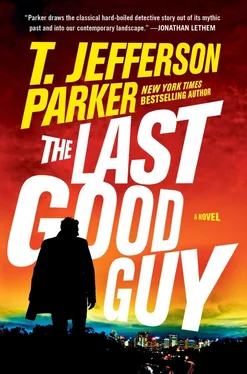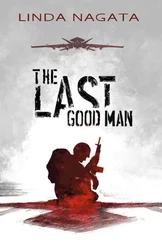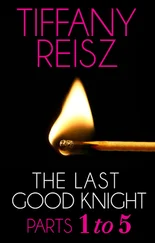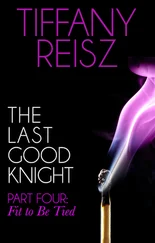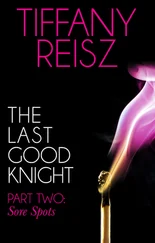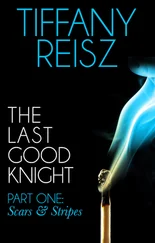She held up her left hand to show me her thoroughly counterfeit ring. And the maybe-gold wedding band alongside it.
“Clever. Why did your family move so much?”
“Dad and Mom. Work.”
“A publications director and a nurse.”
“Always a job for Dad and plenty of offers for Mom. They were grass-is-greener people. Always better somewhere else. When Daley was born they really sped up. Maybe they felt trapped. Every year a new city. Greener grass.”
I recognized some of that in my own parents. And Dad was career Navy for twenty years, so he had to go where they sent him. Scratched that itch for him. Mom the same way. Would still rather go than stay. I grew up in Navy towns, San Diego being the largest and longest.
She placed her hands on my cheeks. “Turn your head to the right.”
Which left me with both eyes open, facing my home, a century-plus-old fortress of adobe brick, with just a few lights on and its usual air of entropy, if not neglect. It deserved better.
“The hard part about faking marriage is digging up an occasional real man when you need one,” she said. “Socially, of course. I’ve managed. But really, people are always so willing to take other people’s word for things, don’t you think? I mean, it’s really much easier to believe what someone tells you than it is to follow every little suspicion down the bunny trail to see what’s really going on. Look at the couple with nine children locked up in the house, hardly fed them, chained them to the beds and starved them. Relatives? Neighbors? Nobody said one thing. Because they wanted to believe the family was normal, like the mom and dad said it was.”
I felt the cooler air as the bandage came off, then the swipe again of alcohol and antibiotic. Heard the rattle of paper as Penelope opened a new dressing.
“Good as new up here,” she said. “I’ll work on that back of yours, if you can hack it.”
I unbuttoned my shirt. She stood and came around behind me to help get it off.
“You have a nice body, Roland, but it hurts just looking at it.”
“Glad I don’t have to see it.”
“Well, time to get tough, hombre .”
I tried to let my mind wander as she lifted off one bandage after another, picked away at dried scabs and the newly surfaced grit. The mind won’t wander at times like this.
“Ever married, then?”
“Nope.”
“You’re sure?”
I felt her hands stop moving. “Now you don’t trust me.”
“You’re too good a liar to trust.”
Silence.
“Look, Roland Ford — I just told you something true about myself. My big bad. Maybe that was stupid. Some people are better off the less they know. They prefer it. Insist on it. I hope that’s not you. I chose you because you dig to the bottom of things and don’t quit until you’re there.”
“At the bottom.”
“Yes.”
“Is that even good?”
“It’s what I need.”
“What else are you hiding?”
I felt her slap on a fresh bandage. She came around and studied me. Hooked a strand of hair behind one ear. Drilled in with those flat blue eyes of hers. Her judgment look. Then the flash of her never-distant temper.
“It must be tiring being you,” I said.
“Now what?”
“Your anger. Your deceit.”
“Mister, if this was a movie and I had a knife, this is where I’d throw it past your head and it would stick in the tree trunk behind you and shiver back and forth. And I’d have your full attention and my anger would have produced good results.”
“Plenty of knives in the kitchen,” I said.
A staredown. Her weighing things. Then a split decision. Close on the judges’ cards. Her face relaxing in slow gradients.
“You’ll trust me someday,” she said. “You just watch.”
Then behind me again, picking away at my wounds with what felt like slightly reduced empathy. I was glad she didn’t have a knife. Not a word between us.
It seemed to take hours, and I was happy for it to be over. She sprayed on the topical painkiller and it cooled things off a little. She helped me back on with the shirt. Sat down across from me as before and buttoned me up. Leaned in closer. Eyes on me, her critical squint.
“There’s nothing I can do about this lip,” she said. “It’s going to have to heal on its own.”
Kissed it softly.
The yellow Beetle putting down the drive. Memories blowing in like a rainstorm.
Hellish heat, and the sun was barely up. Hot as Al Anbar Province, except for the eighty pounds of gear I wasn’t carrying.
I used the early light to dig a burrow in the sand behind a long-fallen tree trunk in a thicket of dead and dying greasewoods. I laid my shotgun on a bed of branches and my hunting vest over it. Set up my telescope for a view of the Paradise Date Farm.
Then took a few minutes and treated myself to coffee from a thermos and a sunrise cigarette. Listened intently for the bee-buzz of the little drone that had tracked me when I’d come here for a look around. So far, no sound at all but the occasional doves flying overhead on squeaky wings.
It was a Tuesday, mid-September in the Imperial Valley, forecast for 116 degrees Fahrenheit. Five days since I whupped those six flyweights in their matching silver helmets, less than half a mile from here. My rib laughed at me as I worked myself into the burrow. The lump on my forehead smarted under my breezer, the sweat burned into my stitches, but the coffee and smoke made me think of Fallujah — a vast, palm-lush, and hostile beauty.
My telescope was a gift from Justine. We’d spent some long and pleasant hours with it on new-moon nights, out in the hills beyond the pond, spying on the heavens. It’s a powerful thing, and with the tripod legs pulled in and pushed well into the sand, the heavy scope was stable.
My foxhole was on a rise. Paradise Date Farm coalesced into startling detail before me: the main house and the large hangar. The red barn and the packing house and the cottages, all in their loose circle. Three silver Expeditions with the SNR Security logo on the doors were parked neatly outside the main house. Six cars stood in front of the long bunkhouse, windows cracked to defer the heat, half of them outfitted with children’s car seats. A few more waited in carports alongside the cottages.
Four dark men loaded wicker baskets and ropes and boxes into the trucks. Long-sleeved shirts and ball caps. They stacked ladders in a long-bed dually, the faint clang of equipment and their voices reaching me across the still, dry air.
Through the open roll-up doors of the metal hangar I saw a row of ATVs, a Bobcat, and two full-sized John Deere tractors, all clean and well tended. Conversing just inside the door were three men wearing the same desert camouflage as the San Onofre guards, and a fourth man in tan slacks and a black golf shirt. He was tall, muscled, and blond, and seemed to have some rank on the uniforms. Hair longer on top and short on the sides, same as Daley Rideout’s guardians. One of whom had shot Nick Moreno in his bed at point-blank range.
A moment later, Adam Revell came through the front door of the main house with an American flag tucked under one arm. The screen door tapped shut behind him. He wore the same blue guard uniform he’d worn to Alchemy 101 the night we’d become friends. He cut in front of two of the harvest workers as if they didn’t exist, on his way to the flagpole that stood not far from the front porch. Then hoisted the flag adroitly, keeping it from touching the ground. Inside the hangar, the men turned to watch, one of the camouflage uniforms saluting casually.
At eight sharp, a very old white pickup truck came to a stop at the speaker console outside the main gate. The truck was mine. I’d accepted it for payment from a neighbor whose missing cat I had located last year around Christmas. Looking for that animal had cost me some valuable hours, and in the end the cat had actually located me. Oxley. My neighbor really loves Oxley, and their reunion was moving. The not-quite-derelict truck had been sitting in my barn ever since, battery disconnected and covered by a tarp. It was old and beaten, but big enough to carry the tools of Burt’s new trade: ladders, buckets, commercial sponges big as bread loaves, squeegees, extension poles, glass cleaner concentrate, rags, rags, rags. Grandpa Dick had once been a commercial artist and early in his career had done signage. He had used light-gray paint to give the door stencil a weathered and authentic look:
Читать дальше
